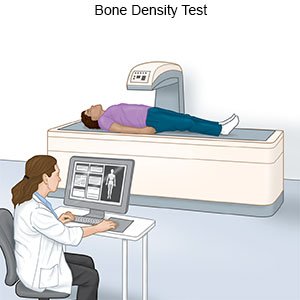Bulimia in Children
Medically reviewed by Drugs.com. Last updated on Aug 4, 2025.
Bulimia is an eating disorder that causes your child to binge and purge food. Bingeing means your child eats a large amount of food in a short amount of time. Purging means your child vomits or uses laxatives to get rid of the food. Your child may also exercise for many hours each day or not eat anything at all in between bingeing episodes to prevent weight gain. Bulimia is also called bulimia nervosa.
WHILE YOU ARE HERE:
Informed consent
is a legal document that explains the tests, treatments, or procedures that your child may need. Informed consent means you understand what will be done and can make decisions about what you want. You give your permission when you sign the consent form. You can have someone sign this form for you if you are not able to sign it. You have the right to understand your child's medical care in words you know. Before you sign the consent form, understand the risks and benefits of what will be done to your child. Make sure all of your questions are answered.
Healthcare providers will check your child's vital signs.
Vital signs include blood pressure, heart rate, breathing rate, and temperature. The providers will also ask you or your child about his or her pain.
An IV
is a small tube placed in your child's vein that is used to give medicine or liquids.
Meals and bathroom use:
Your child may be allowed to use the bathroom only when a healthcare provider is present. This is to help your child change behavior that focuses on binging and purging secretly.
Nutrition:
Your child will meet with a dietitian to talk about nutrition and develop a healthy meal plan. It is important for your child to eat 3 to 5 structured meals a day to reduce the urge to binge. Your child might need to learn how to prepare healthy food. Your child might also need to relearn what it feels like to be hungry and full.
Related medications
Treatment options
The following list of medications are related to or used in the treatment of this condition.
Physical activity:
Your child will be weighed regularly to find out if she or he is gaining, losing, or maintaining weight. Limited amounts of physical activity will be part of your child's daily routine. A healthcare provider will help your child learn ways other than exercise to relieve stress.
Tests:
- Blood tests will show if your child is getting enough iron, calcium, and other nutrients.
- Urine tests may be used to check for signs of dehydration.
- Bone density pictures may show bone loss that bulimia can cause. Your child's risk for bone loss is higher if she is female and no longer has a monthly period.

- An EKG may be used to check the electrical activity of your child's heart. Bulimia can lead to heart rhythm problems.
Medicines:
Your child may need any of the following:
- Depression medicine called SSRIs are usually used to treat bulimia. Your child may need this medicine even if she or he is not depressed. An SSRI gives your child's brain more of a chemical called serotonin. Serotonin may help your child focus on other things and think less about weight and food.
- Seizure medicine may help control your child's mood swings and decrease aggression or irritability.
- Nausea medicine may be given to calm your child's stomach and prevent vomiting.
- Vitamin or mineral supplements may be needed if your child's nutrient levels are low because of bulimia.
Therapy:
- Cognitive behavioral therapy is used to help your child change thoughts about food, weight gain, and self-worth. A therapist will teach your child how to identify negative thoughts and beliefs and replace them with positive thoughts and beliefs. Your child will also learn new ways to cope with events that trigger bulimia.
- Group therapy, family therapy, or a support group can help your child talk with others who also have bulimia. Group therapy is a meeting with other people who also have bulimia. Family therapy is a meeting with a therapist and your child's family members. Overeaters Anonymous, Eating Disorders Anonymous, or another support group may help prevent a relapse in the future.
RISKS:
- Without treatment, bulimia is likely to be a long-term condition. Many of the risks of bulimia can be life-threatening. Your child can develop congestive heart failure if she or he uses ipecac to make herself or himself vomit. Vomiting can make your child's electrolytes (calcium, sodium, potassium) too high or too low. This could cause your child's heart to stop.
- The acid in vomit may damage the enamel on your child's teeth and cause cavities and gum disease. Repeated vomiting can also cause heartburn, acid reflux, and damage to your child's esophagus. If your child abuses laxatives, her or his bowels could stop working. Your child could need rectal surgery or a colostomy bag. Your child's bones could fail to develop fully, and she or he could have weak bones or bone fractures.
CARE AGREEMENT:
You have the right to help plan your child's care. Learn about your child's health condition and how it may be treated. Discuss treatment options with your child's healthcare providers to decide what care you want for your child.© Copyright Merative 2025 Information is for End User's use only and may not be sold, redistributed or otherwise used for commercial purposes.
The above information is an educational aid only. It is not intended as medical advice for individual conditions or treatments. Talk to your doctor, nurse or pharmacist before following any medical regimen to see if it is safe and effective for you.
Learn more about Bulimia
Treatment options
Care guides
Symptoms and treatments
Further information
Always consult your healthcare provider to ensure the information displayed on this page applies to your personal circumstances.
